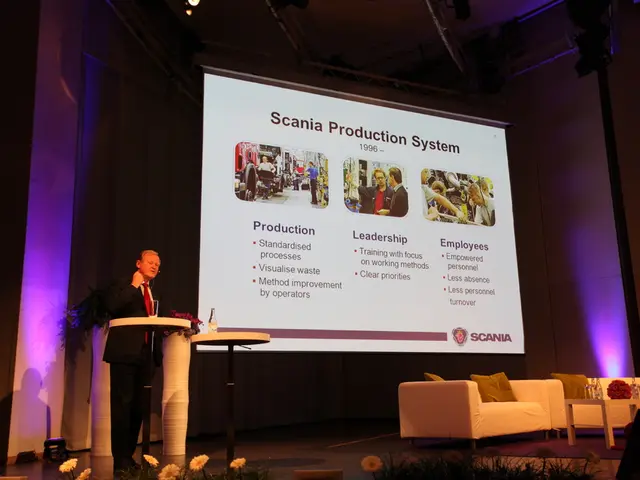Images portraying debate: Revolution or entrapment?
Pix: A Double-Edged Sword Transforming Brazil's Financial Landscape
Since its launch in 2020, Pix has become a staple in Brazil's payment scene, exploding in popularity and trampling traditional banking systems. This humble payment method set a record in April 2024, with an astounding 162.4 million transactions on a single day. In just under four years, Pix has redefined the way Brazilians buy, sell, and transfer money, and left us questioning – revolution or trap?
Unleashing a Revolution through Democratization and Inclusion
Pix has undoubtedly disrupted the status quo. Small businesses, freelancers, and MEIs have found their independence from cumbersome banking systems and dateless card machines. The freedom to sell and receive money instantaneously, sans fees, and without relying on third parties, is a significant advancement – especially in areas with limited credit access and formal structures.
Pix has welcomed millions of Brazilians into the digital financial sphere, giving them the ability to operate digitally using a simple QR code. And the result? More inclusiveness, agility, and in many cases, better security for many users.
Treading Cautiously – Problems, Lack of Control, and Invisible Risks
On the flip side, the ease and convenience of Pix have created their own set of problematic practices. Businesses trading only via Pix without invoices, receipts or traceability may see short-term benefits, but these practices jeopardize growth and stability in the medium and long-term.
Another concern is the irreversibility of Pix transactions. Unlike credit cards, which allow for contests and chargebacks, transactions made through Pix are final. If a payment mistake is made or someone gets scammed, the loss is usually the customer's.
Moreover, instant inflows of money give a false sense of cash flow, leading many to lose track of their finances or mix personal and business funds.
Did You Know? The Biggest Pix Transactions in Brazil
Here's an interesting tidbit: the largest Pix transaction ever recorded in Brazil was an astounding R$3 billion on October 1, 2024, between major financial institutions. Two other billion-dollar transactions were also made in April and September 2023. In 2022, the record was a more modest R$1.2 billion. These numbers demonstrate that Pix isn't just for small transactions – it's robust, secure, and reliable enough to be adopted by banks, companies, and large economic groups.
Global Focus: Brazil Paves the Way in Instant Payments
Instant payments aren't exclusive to Brazil. Countries such as India, the United Kingdom, China, and Europe have similar systems. In India, for example, UPI integrates well with banks, fintechs, and apps like WhatsApp. The United Kingdom introduces Faster Payments since 2008 but with lower volumes compared to Pix. China leads in this category with apps like Alipay and WeChat Pay, which are widely used for everything from tax payments to tolls. In the European Union, efforts are underway to promote instant transfers, but adoption remains relatively low.
Notably, no other country has seen such rapid and comprehensive growth as Brazil. With over 160 million active Pix accounts – practically one for every Brazilian – Pix has become a global reference in usability, scale, and trust.
So, What's Next for Pix? Pix Installments, International, and Secure Transactions
The Central Bank is gearing up for new changes. Guaranteed Pix is being billed as an attractive alternative to bills and checks, allowing safe, standardized transactions. Pix Installments will let customers pay for purchases in installments, directly from their accounts, without the need for credit cards. And an International Pix feature is in development – it will enable seamless transfers to other countries with ease.
Adopting these novel features could be revolutionary for commerce, but it will require preparation and education for both businesses and consumers.
The Catch: Technology Doesn't Solve Everything – Good Usage Makes the Difference
Pix is one of the most significant financial innovations in recent years, but whether it's a revolution or a trap depends on the user. If leveraged to facilitate, formalize, organize, and promote autonomy, it brings a breath of fresh air. If misused to skirt oversight, improvise, or conceal problems, it becomes a potential risk. The smart entrepreneurs understand that technology itself doesn't solve everything – but when used with wisdom, it can prove to be the missing catalyst for business transformation.
- BUSINESS AND FRANCHISE
- PIX
Enrichment Data:
General Impact of Pix
The adoption of Pix in Brazil has brought significant changes to the financial landscape, benefiting small businesses, individuals, and the overall financial system in various ways:
Small Businesses
- Increased Accessibility to Recurring Payment Solutions
- Financial Inclusion
Individuals
- Greater Financial Inclusion
- Simplified Convenience and Efficiency
- Crypto Payment Integration
Overall Financial System
- Reduction in Cash Usage
- Increased Competition and Innovation
- Solid Foundation for Future Financial Innovations
Risks and Challenges
While Pix presents numerous benefits, there are associated risks to consider:
- Security Risks
- Dependence on Digital Infrastructure
- Regulatory Challenges
Overall, Pix has brought about a revolution in the financial sphere, presenting both advantages and challenges that need careful consideration.
- Small businesses have found financial independence and enhanced accessibility to recurring payment solutions, such as Pix, which has allowed them to operate more efficiently without relying on traditional banking systems.
- The incorporation of Pix into the financial landscape has led to a significant reduction in cash usage, promoting greater financial inclusiveness among individuals and providing them with a more simplified and efficient method of buying, selling, and transferring funds.




